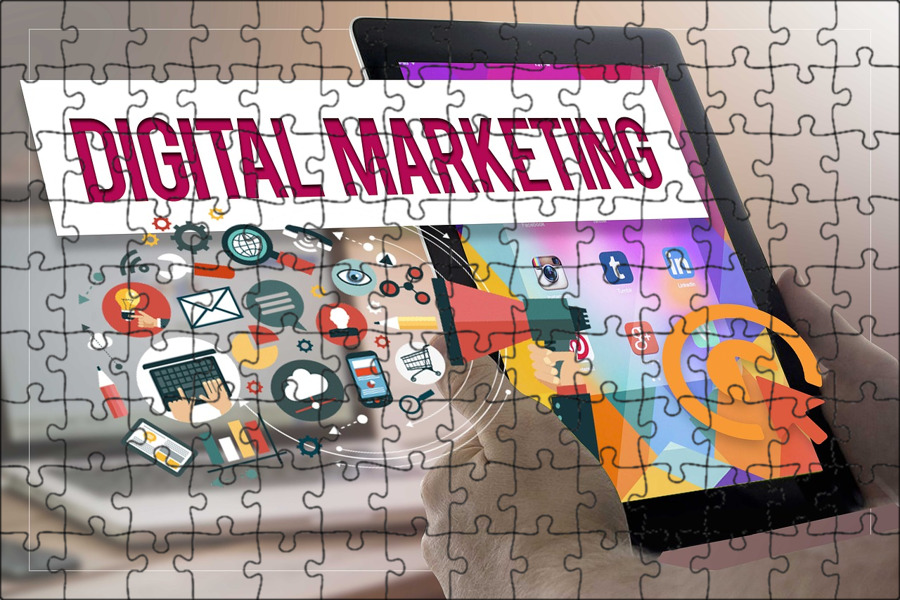In today’s world, digital marketing has become a crucial aspect of business growth. With the internet’s widespread reach, it has opened up countless opportunities for brands to connect with their audiences, increase visibility, and drive sales. But what exactly is digital marketing, and how does it work?
Let’s dive deep into digital marketing and explore every element, including blogging, SEO, and various other niches within this vast field.
What is Digital Marketing?
Digital marketing is the use of digital channels, tools, and platforms to promote products, services, and brands. Unlike traditional marketing methods, which include print ads, TV, and radio, digital marketing leverages the Internet, social media, email, search engines, and more to reach and engage with a targeted audience.
- More Info on Digital Marketing: Wikipedia – Digital Marketing
Key Niches in Digital Marketing
Digital marketing is not a one-size-fits-all approach. It is made up of several niches that specialize in different techniques to drive results. Here are some of the most important niches within digital marketing:
- Search Engine Optimization (SEO)
- What is SEO?: Wikipedia – Search Engine Optimization
- Content Marketing
- More on Content Marketing: Wikipedia – Content Marketing
- Pay-Per-Click (PPC) Advertising
- Learn About PPC: Wikipedia – Pay-per-click Advertising
- Social Media Marketing (SMM)
- More About SMM: Wikipedia – Social Media Marketing
- Email Marketing
- Email Marketing Insights: Wikipedia – Email Marketing
- Affiliate Marketing
- Learn About Affiliate Marketing: Wikipedia – Affiliate Marketing
- Influencer Marketing
- More Info on Influencer Marketing: Wikipedia – Influencer Marketing
- Video Marketing
- About Video Marketing: Wikipedia – Video Marketing
- Mobile Marketing
- More on Mobile Marketing: Wikipedia – Mobile Marketing
- Web Analytics & Data Analysis
- Web Analytics Explained: Wikipedia – Web Analytics
Exploring Each Digital Marketing Niche
1. Blogging and Content Marketing
Blogging is one of the core aspects of digital marketing. A blog is a great way to engage with your audience and offer valuable content, including product information, industry news, and personal insights.
- Why Blogging is Essential: Blogging helps you rank higher in search engines through SEO. Consistent posting builds trust, drives organic traffic, and establishes your brand as an authority in your industry.
How to Start Blogging:
- Choose Your Niche: Select a topic that you’re passionate about and that aligns with your target audience’s interests.
- Keyword Research: Use SEO tools like Google Keyword Planner to find the most searched terms related to your niche.
- Create High-Quality Content: Write informative, engaging blog posts that provide real value.
- Optimize for SEO: Include keywords, meta descriptions, and high-quality images to enhance the visibility of your blog posts.
2. SEO (Search Engine Optimization)
SEO is all about improving the visibility of your website or blog in search engines like Google. When done right, SEO helps your site rank higher, attracting more visitors without having to pay for ads.
How to Get Started with SEO:
- Learn On-Page SEO: Optimize the content on your website, including titles, descriptions, images, and internal links. Learn On-Page SEO
- Focus on Off-Page SEO: Build backlinks from reputable websites to increase your site’s authority. Off-Page SEO Tips
- Technical SEO: Ensure your website has a fast loading speed, mobile compatibility, and a clean URL structure. Google Search Console
3. Social Media Marketing (SMM)
Social media marketing is about promoting your brand on platforms like Facebook, Instagram, LinkedIn, Twitter, and TikTok. It helps brands reach potential customers, build relationships, and promote their products or services.
How to Get Started with SMM:
- Identify Your Audience: Know where your target audience spends time (Facebook, Instagram, LinkedIn, etc.). Facebook Audience Insights
- Create Engaging Content: Post a mix of engaging content, such as images, videos, polls, and stories.
- Run Targeted Ads: Use the advertising options available on social media platforms to target specific demographics. Instagram Ads Guide
4. Pay-Per-Click (PPC) Advertising
PPC advertising allows you to advertise on search engines and social media platforms, where you pay each time someone clicks on your ad. It’s a quick way to generate traffic.
How to Get Started with PPC:
- Choose Your Platform: Decide whether to advertise on Google or Facebook.
- Select Keywords: Choose keywords that your audience is likely to search for using tools like SEMrush.
- Optimize Your Ads: Craft compelling ad copy and use high-converting landing pages. PPC Landing Page Tips
5. Email Marketing
Email marketing involves sending targeted emails to a list of subscribers. It’s an effective way to nurture leads, promote products, and maintain customer relationships.
How to Get Started with Email Marketing:
- Build an Email List: Offer incentives like free eBooks or discounts to encourage users to subscribe. How to Build an Email List
- Craft Engaging Emails: Write personalized emails with valuable content and clear calls to action (CTAs).
- Use Automation: Set up email automation for welcome series, follow-ups, and promotional offers. Mailchimp Email Automation
6. Affiliate Marketing
In affiliate marketing, you promote someone else’s product and earn a commission for every sale or lead generated through your affiliate link.
How to Get Started with Affiliate Marketing:
- Find Affiliate Programs: Join platforms like Amazon Associates, ClickBank, or ShareASale.
- Promote Affiliate Products: Share affiliate links through blog posts, social media, or YouTube videos.
- Track Your Earnings: Use affiliate marketing tools to monitor your sales and commissions. Affiliate Dashboard Example
7. Influencer Marketing
Influencer marketing leverages the reach of influencers with a large following on social media platforms to promote your brand.
How to Get Started with Influencer Marketing:
- Identify the Right Influencers: Look for influencers whose audience aligns with your brand. Influencer Marketing Hub
- Negotiate Partnerships: Reach out and propose sponsored content or affiliate marketing deals.
- Track Performance: Measure engagement, click-through rates, and conversions to assess the effectiveness of the campaign. Influencer Campaign Tracking Tools
8. Video Marketing
Video marketing is one of the most powerful tools for brand storytelling. It allows you to engage your audience in a more personal and impactful way through platforms like YouTube, Facebook, and Instagram.
How to Get Started with Video Marketing:
- Create Engaging Videos: Produce high-quality videos that address your audience’s pain points or interests. YouTube Marketing Tips
- Optimize Your Videos: Use relevant keywords in your video titles, descriptions, and tags for better visibility.
- Share on Multiple Platforms: Post videos across various platforms to maximize reach. Facebook Video Marketing
9. Mobile Marketing
Mobile marketing focuses on reaching users on their mobile devices, whether through SMS, mobile apps, or mobile-optimized websites.
How to Get Started with Mobile Marketing:
- Create a Mobile-Friendly Website: Ensure your website is responsive and loads quickly on mobile devices. Mobile Website Optimization Tips
- Use SMS Campaigns: Send personalized offers via text to your audience. SMS Marketing Tips
Conclusion
Digital marketing is an essential tool for businesses to grow and thrive in today’s competitive landscape. Whether you’re looking to improve your SEO, run effective PPC campaigns, or build a successful social media presence, numerous digital marketing niches can help you achieve your goals. Keep learning, experimenting, and refining your strategies for the best results.
FAQs About Digital Makreting
- What is the best form of digital marketing for small businesses?
- Content marketing, social media marketing, and SEO are highly effective for small businesses.
- How long does it take to see results from digital marketing?
- SEO and content marketing typically take 3-6 months to show results.
- What’s the difference between SEO and SEM?
- SEO focuses on organic search results, while SEM includes paid search ads like Google Ads.
- Can digital marketing help with brand awareness?
- Yes, digital marketing strategies like social media, content marketing, and influencer marketing are great for building brand awareness.
- How much should I budget for digital marketing?
- Start with a small budget and scale up as you see results, typically starting from $500/month for paid campaigns.
User Feedback Question
“Which digital marketing strategy has worked best for your business, and how did you implement it?”



Discover the top-rated SEO tools of 2025 to skyrocket your website’s rankings.
I have learned some considerations through your website post. One other stuff I would like to convey is that there are many games on the market designed specially for toddler age kids. They include pattern acceptance, colors, creatures, and forms. These normally focus on familiarization rather than memorization. This makes a child engaged without having the experience like they are learning. Thanks
Thanks sir for your apricating right now I have 2 years experience in DM My age only 15 years old
Funnels Forever has made my online business incredibly successful. I’m amazed at how advanced it is. Honestly, I’ve even been able to surpass my initial business goals.
Wow! This could be one particular of the most useful blogs We’ve ever arrive across on this subject. Basically Fantastic. I am also an expert in this topic therefore I can understand your effort.
F*ckin?tremendous things here. I抦 very glad to see your article. Thanks a lot and i am looking forward to contact you. Will you kindly drop me a e-mail?
hadi4730059@gmail.com
contact@abdullhouhadi.com